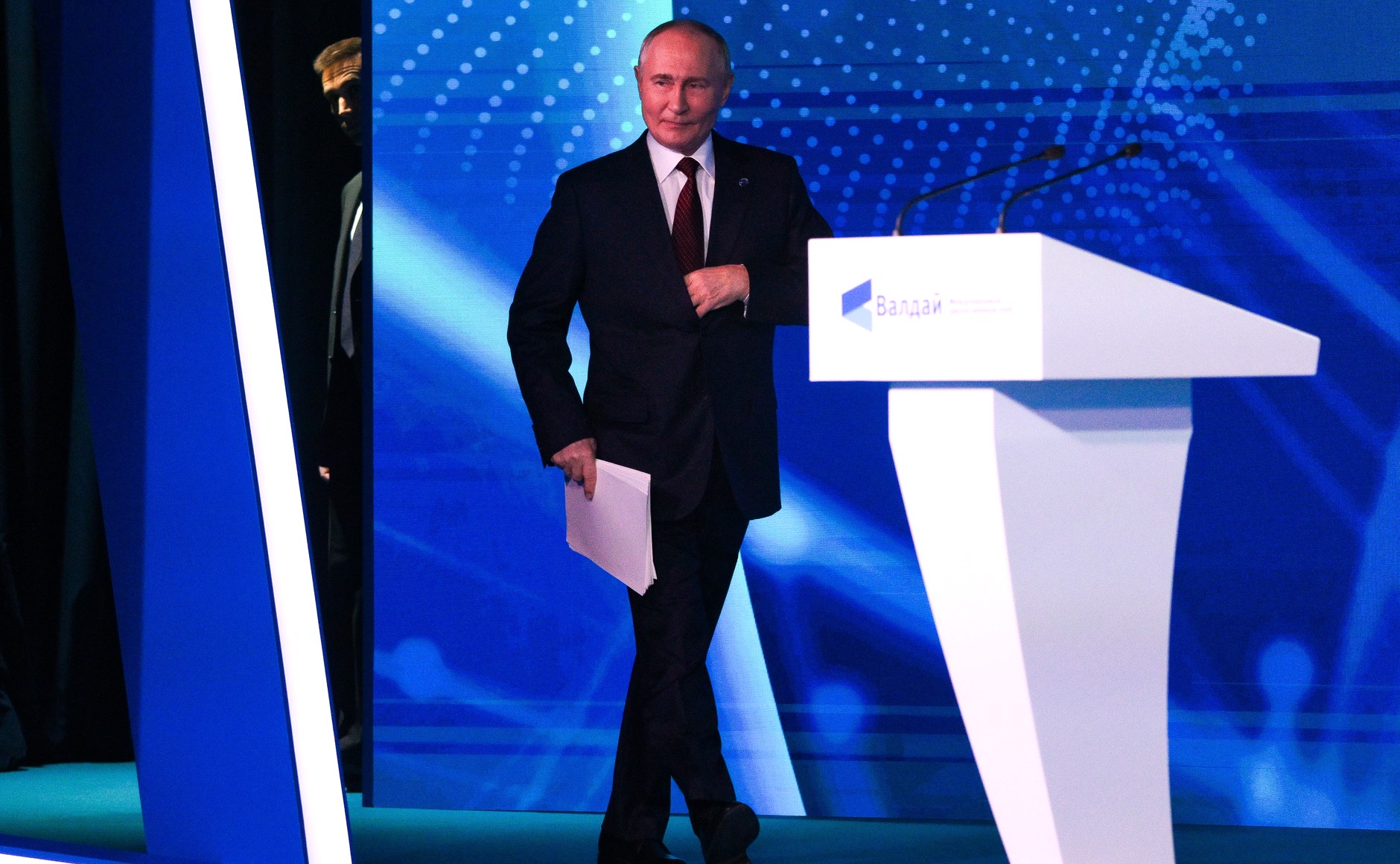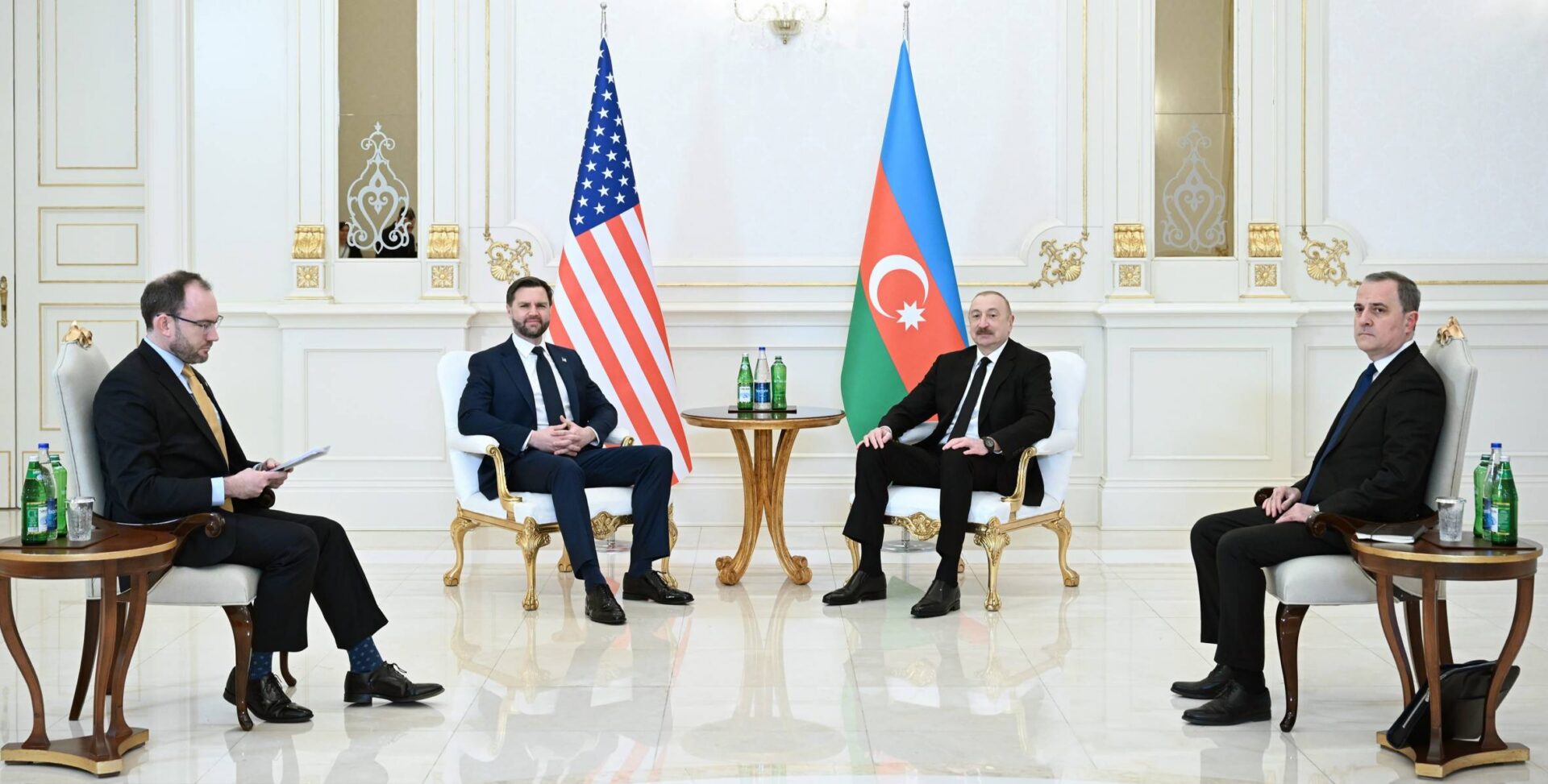
Russian Propaganda Fuels Nuclear Blackmail Rhetoric
Russian Propaganda Fuels Nuclear Blackmail Rhetoric
Executive Summary:
- Over the past several months, Russian propaganda and reputable analytical platforms close to the Kremlin have increasingly threatened to use nuclear weapons against the West.
- On the one hand, these threats are intended to frighten the West, but on the other, Russian propagandists themselves are starting to believe in the inevitability of escalation.
- Putin and his entourage’s distorted image of the world and how Russia can defeat the West is divorced from reality, causing them to issue demands that are impossible to fulfill.
The program director of the pro-Kremlin think tank Valdai Discussion Club, Andrey Sushentsov, published an article on November 11 dedicated to the growing nuclear tensions in the conflict between Russia and the West. In his article, Sushentsov repeats Russian leaders’ favorite threat of what would happen if there was direct North Atlantic Treaty Organization (NATO) intervention in the war against Ukraine. He writes, “The conflict will reach a completely new level, with unpredictable consequences for Europe and the entire world” (Valdai Discussion Club, November 11). Over the past months, the increasing threat to resort to nuclear weapons has been observed not only in Russian propaganda but also in fairly reputable analytical platforms close to the Kremlin. Kremlin “experts” do not conceal that such threats are only intended to break the West psychologically, as they themselves are not prepared for full-scale nuclear war. The normalization of “nuclear” rhetoric and the escalation in its use over the past several years, however, increases the risk of full-scale war regardless of the West’s reaction.
Sushentsov’s words seem mild in comparison with declarations last year from Sergey Karaganov, one of the founders of the Russian Council on Foreign and Defense Policy (RCFDP). Karaganov called for “delivering a pre-emptive strike of retaliation” on Poland to force the West to surrender (Profile.ru, June 13, 2023). He was echoed by Dmitriy Suslov, the director of research programs at RCFDP, who proposed organizing “a demonstration nuclear explosion” to intimidate the West (Profile.ru, May 29).
This summer, speaking at the plenary session of the St. Petersburg International Economic Forum, Russian President Vladimir Putin formally stated that he did not support Karaganov’s extreme rhetoric, going as far as jokingly calling him a “scary person” (Nezavisimaya Gazeta, June 13). At the end of September, however, Putin revealed a reappraisal of Russian nuclear doctrine (see EDM, September 30). Moscow is significantly expanding the list of acceptable situations for using nuclear weapons, including in the event of an attack by a non-nuclear state “with the support of a nuclear state” or in the event of receiving “reliable information about a massive launch of air and space offensive weapons and their crossing of our state border” (BBC Russian Service, September 26).
Talk about the necessity of nuclear escalation in the Russian expert community has intensified of late. At the end of October, Karaganov explained that the primary goal of such escalation is to break the spirit of the West and force its capitulation. Simultaneously, he assured his critics in India and China that all US threats to launch a serious non-nuclear strike on Russian positions in Ukraine and on the Black Sea Fleet in response to a nuclear strike by Moscow are a bluff (YouTube.com, October 31). At the beginning of November, during a session of the annual meeting of the international Valdai Discussion Club, Karaganov again called for increasing the role of nuclear deterrence in international relations over the next 20 years (RBC, November 5).
Russian nuclear blackmail is seemingly affecting Western politicians. Independent media reports that in President-elect Donald Trump’s entourage, it is considered essential to freeze the front line as it stands and postpone Ukraine’s accession to NATO in exchange for the continuation of arms supplies to the country (Istories.media, November 7). Western concessions to Russia, however, are unlikely to reduce the risk of nuclear escalation. Russian radicals lobbying for the use of nuclear weapons live in a distorted reality and are simply incapable of understanding these concessions. For example, experts on the website “Military Review,” which is closely associated with the Russian Defense Ministry, publish conspiracy theories about how a mysterious “World Government” controls the United States, of which Trump is just one of its adherents (Topwar.ru, November 5). Other authors of the site assure their readers that Ukraine, in any event, will create a nuclear bomb, and Russia must be prepared for this (Topwar.ru, November 11).
Russian ambitions—and demands—are so great that the West will never be able to fulfill them, even if it wanted to. Religious preachers claim that true victory is possible only “in the enemy’s lair,” which requires their opponent’s complete destruction (YouTube.com, November 10). Karaganov holds the same view (YouTube.com, October 31). Moreover, Russia’s destructive behavior extends not only to its war in Ukraine but toward the entire world order. For example, another RCFDP member, former spy Andrei Bezrukov, has offered to help Iran acquire nuclear weapons since, according to him, Iran has no aggressive ambitions. Instead, in Bezrukov’s telling, the most destabilizing country in the region is Israel (YouTube.com, October 31).
Should the West make more concessions to Russia, the appetites of Moscow and its allies, such as Iran and North Korea, for global reorganization will only grow. The distorted image of the world where Putin and his entourage live renders Moscow’s demands divorced from reality and impossible to fulfill. In this case, the only restraining factor for the Kremlin would be a demonstration by Western countries of their own readiness to use force in the event of further escalation—a readiness that Russian “experts” prefer not to believe is possible.


